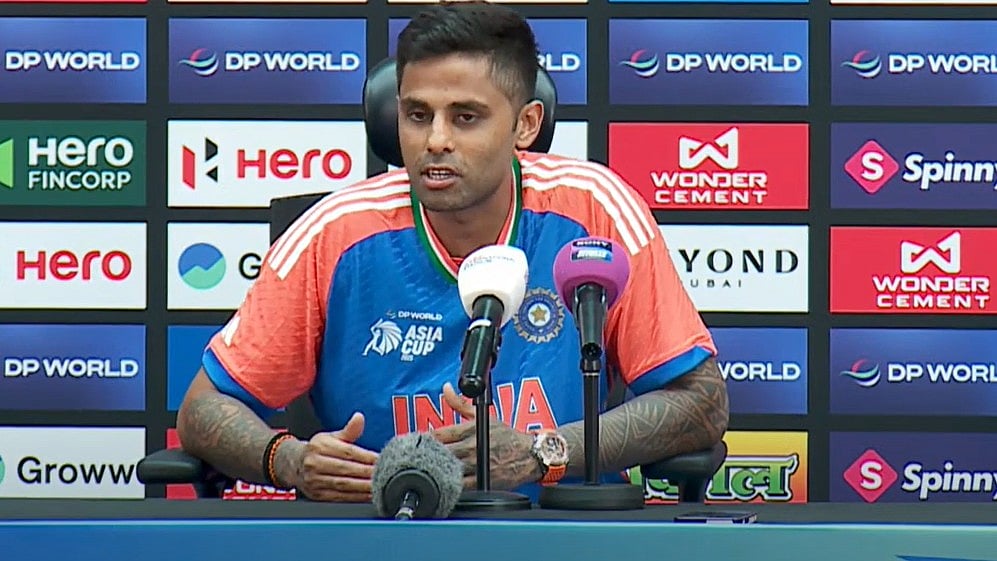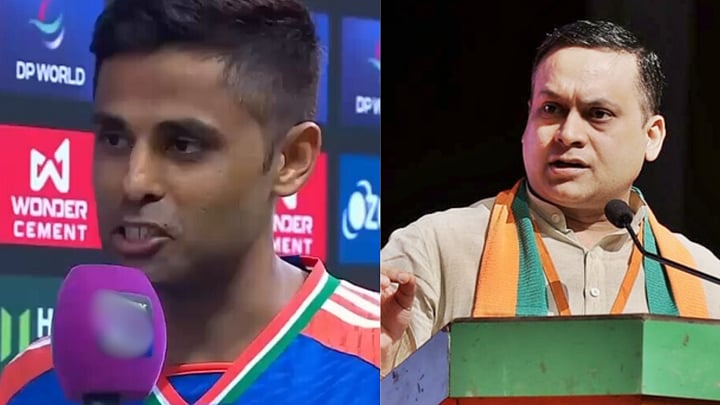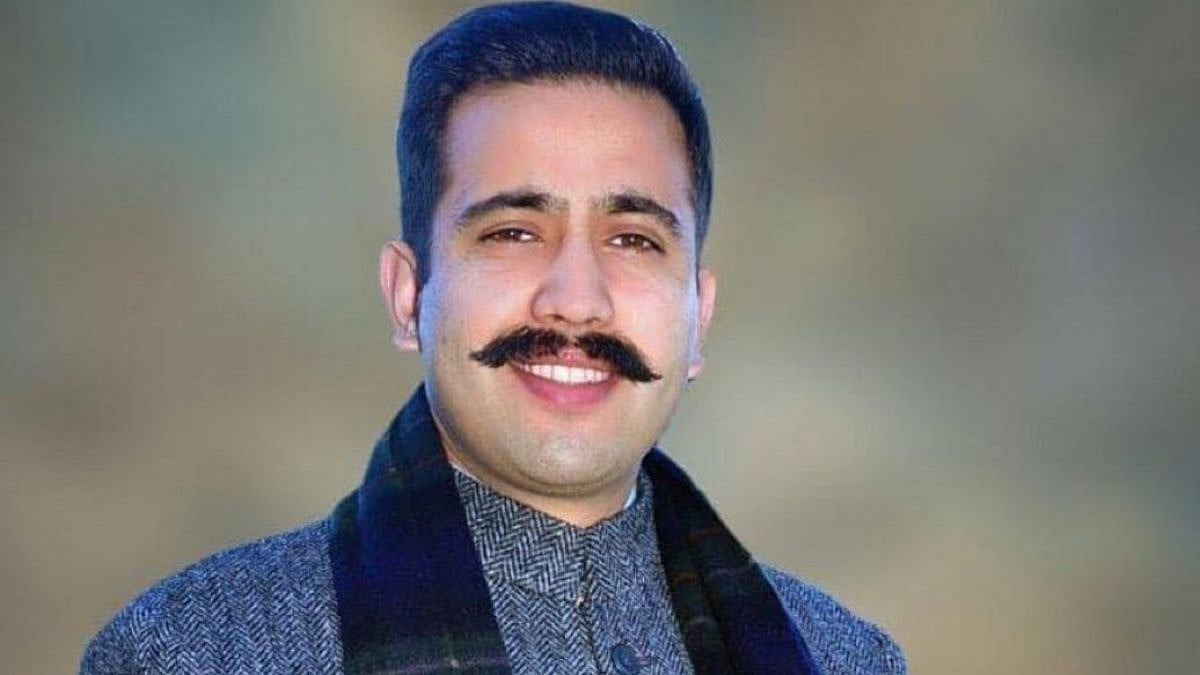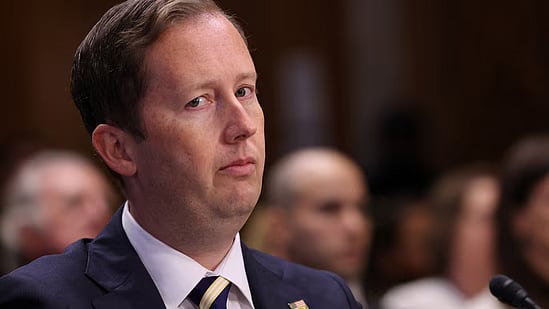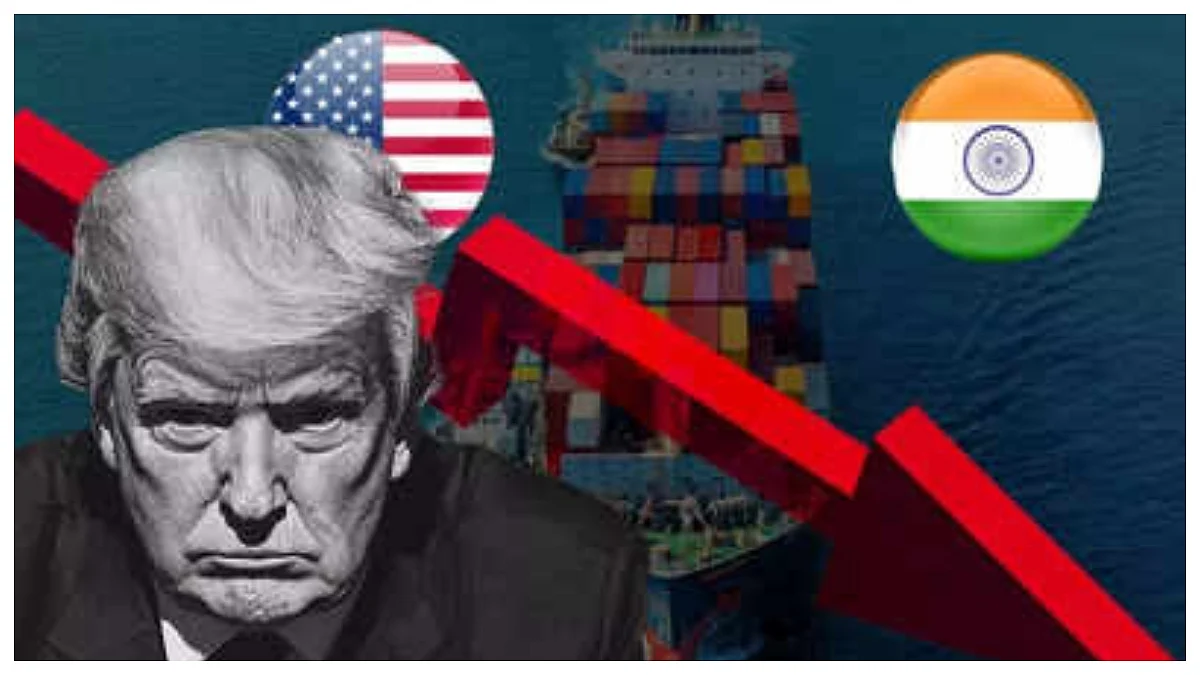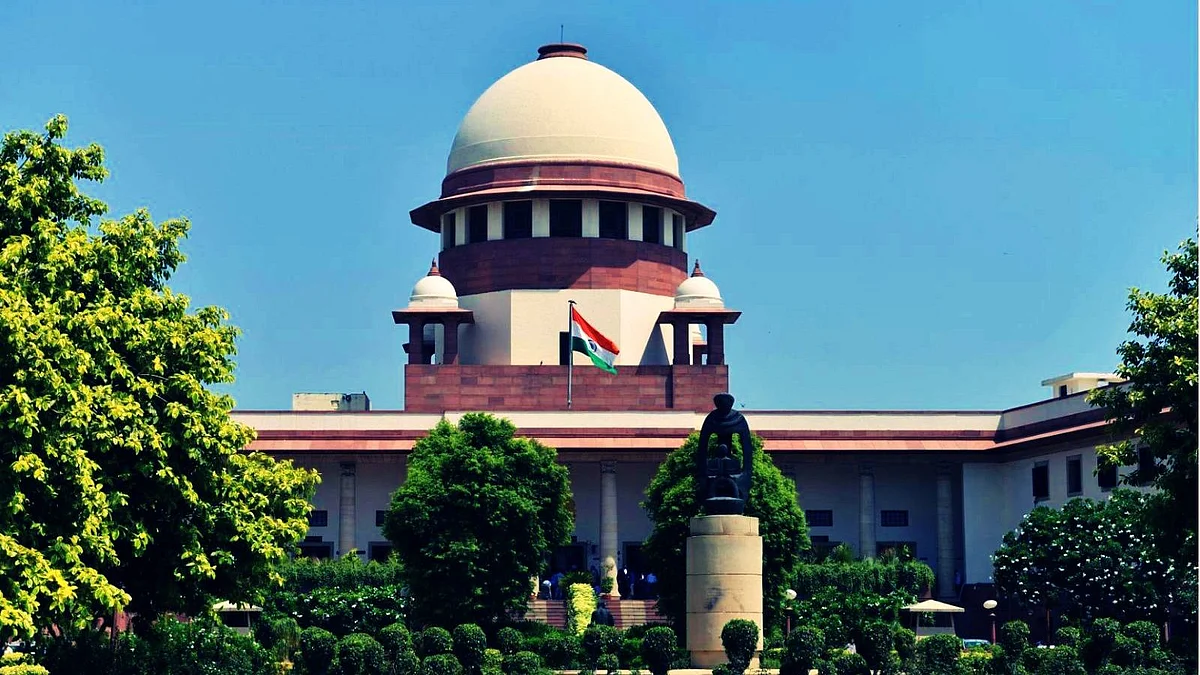The BJP never misses a chance to strike the Congress where it hurts the most, and its latest manoeuvre is nothing short of a political coup. By appointing Kerala MP, Shashi Tharoor as the leader of India’s delegation to the United States, Brazil, Panama, Guyana and Colombia to expose Pakistan’s terror links and defend India’s decisive retaliation following the gruesome Pahalgam massacre of 26 tourists by Pakistan-backed terrorists, the Modi government has thrust the Congress into a political dilemma.
In a stunning display of strategic dexterity, the government has elevated Tharoor—an articulate, globally recognized diplomat—to a position of prominence, while the Congress has conspicuously side-lined him. Its official list of four MPs for the United Nations delegation—featuring Anand Sharma, a seasoned former Union Minister; Gaurav Gogoi, the party’s Deputy Leader in the Lok Sabha; Dr. Syed Naseer Hussain, Rajya Sabha MP; and Raja Brar, Lok Sabha MP—deliberately omits Tharoor, leaving a glaring void. Congress has accused BJP of playing politics even when such party level rivalries must be avoided.
Media Narratives: Tharoor-Vajpayee Comparisons Fuel Debate
Majority of the TV channels have launched an indefatigable campaign to equate the nomination of Shashi Tharoor by the Modi government in 2025 with Atal Bihari Vajpayee’s nomination by the Narasimha Rao government in 1994. However, such comparisons overlook fundamental differences in purpose, context, and political impact. Narasimha Rao's decision to nominate Vajpayee, then Leader of the Opposition, as the leader of India's delegation to the United Nations in 1994 was a diplomatic masterstroke aimed at presenting a united Indian front against Pakistan’s false propaganda on Kashmir. Vajpayee, a statesman with formidable oratory skills, forcefully countered Pakistan’s anti-India narrative, emphasizing India’s right over Jammu and Kashmir and exposing Pakistan’s support for terrorism.
Contrasting Contexts: Rao’s Unity vs. Modi’s Political Tactic
In contrast, the Modi government's decision to nominate Shashi Tharoor to lead India’s delegation to five nations to expose Pakistan’s terror links and justify India’s retaliatory strikes under "Operation Sindoor" has sparked controversy. Tharoor, a Congress MP, is a seasoned diplomat with significant experience in international forums. Yet his nomination has been met with visible disapproval from his own party. Congress President ,Mallikarjun Kharge and Leader of the Opposition, Rahul Gandhi have excluded Tharoor from the four-member Congress delegation to the United Nations, signalling their lack of endorsement.
The Stark Contrast: Vajpayee’s Statesmanship vs. Tharoor’s Predicament
Furthermore, Tharoor’s status is fundamentally different from Vajpayee’s in 1994. Vajpayee was a towering figure as Leader of the Opposition, commanding respect across party lines. Tharoor, despite his diplomatic credentials, is merely an MP though he has got gifted oratory skill in English and also chairman of parliamentary committee on foreign affairs. The Modi government’s decision raises questions about whether it is genuinely seeking a strong Indian voice to expose Pakistan’s terror links or simply using Tharoor to create an image of bipartisan backing while side-lining Congress leadership?
Tharoor’s Dual Image: Congress Outcast, Government Asset
The exclusion of Tharoor by the Congress and his simultaneous elevation by the Modi government is a masterclass in political manoeuvring. It not only reveals the discomfort of the Congress leadership with one of its most high-profile MPs but also paints Tharoor as a maverick, unrestrained by party diktats. The development risks Tharoor’s alienation from Congress which may head toward political isolation, evoking memories of Ghulam Nabi Azad, who was publicly praised by Prime Minister Narendra Modi before walking out of the Congress and launching a party now languishing in obscurity. Critics also argue that BJP is strategically using Tharoor to fill a leadership vacuum in Kerala provided he joins the party , a state where the saffron party has struggled to find a charismatic leader capable of challenging the ruling Left Democratic Front (LDF) and Congress-led UDF. Tharoor’s earlier vocal endorsement of "Operation Sindoor" and his towering credentials as a former UN diplomat make him an asset in any international forum which the Modi government is keen to leverage, even if it means deepening the cracks within the Congress.
A Clear Departure from Bipartisan Unity
This situation is a striking departure from 1994, where Vajpayee’s nomination was a display of national unity on a critical foreign policy issue. In Tharoor’s case, the Modi government’s move appears more like a political manoeuvre, bypassing Congress leadership and directly choosing an opposition MP who has had a history of differences with his party. Critics argue that this nomination is less about bipartisan unity and more about exploiting Congress's internal differences while presenting a facade of cross-party support.
BJP Attacks Congress for Excluding Shashi Tharoor from Multi-Party Delegation
The BJP has sharply questioned the Congress for excluding Shashi Tharoor from a multi-party delegation being dispatched to various countries, insinuating that the decision reflects an "intolerance" toward those who "outshine the high command." The party's IT Cell chief, Amit Malviya, took to 'X' to express his astonishment, underscoring Tharoor’s credentials—his eloquence, extensive experience as a United Nations official, and profound insights on foreign policy—qualities that make him an ideal choice for such a delegation.
Malviya directly targeted the Congress leadership, particularly Rahul Gandhi, questioning the rationale behind bypassing Tharoor. “Why has the Congress Party—and Rahul Gandhi in particular—chosen not to nominate him for the multi-party delegations being sent abroad to explain India’s position on key issues? Is it insecurity? Jealousy? Or simply intolerance of anyone who outshines the ‘high command’?” he posted.
Further intensifying his criticism, Malviya questioned the inclusion of Gaurav Gogoi and Syed Naseer Hussain in the Congress list, alleging that Gogoi had stayed in Pakistan for 15 days, while Hussain’s supporters had reportedly raised 'Pakistan Zindabad' slogans. He described these nominations as "not just intriguing but deeply questionable," raising doubts about the credibility of those chosen by the Congress to represent India on sensitive diplomatic matters. “How can MPs facing such grave allegations be trusted to represent India—particularly on matters involving Pakistan? What message is the Congress trying to send, and whose interests are really being served?” Malviya asked.
Congress Expresses Disappointment over Exclusion of Key Leaders
In retaliation, the Congress expressed deep disappointment, stating that “most regrettably,” only one of the four names it proposed had been included in the seven delegation groups, calling it a clear demonstration of the Modi government's "complete insincerity" and its penchant for "cheap political games on serious national issues." The party emphasized that while the government had reached out to Shashi Tharoor, his Lok Sabha colleagues Manish Tewari and Amar Singh, as well as former External Affairs Minister Salman Khurshid to participate in the delegations, only Tharoor was appointed, and the other three were assigned to different groups. Notably, none of these names, including Tharoor’s, were part of the official list suggested by the Congress.
However, Tharoor stood firm, asserting his commitment to the nation. “I am honoured by the invitation of the Government of India to lead an all-party delegation to five key capitals, presenting our nation’s perspective on recent events. When the national interest is at stake and my services are required, I will not be found wanting. Jai Hind!” he declared in a post on X. In response, the Congress highlighted that multi-party delegations have been a standard democratic practice, citing historical precedents: Jawaharlal Nehru including C Rajagopalachari in 1963, Indira Gandhi incorporating Jayaprakash Narayan, and PV Narasimha Rao inviting Atal Bihari Vajpayee. However, the party underscored that any MP nominated should first seek the concurrence of party leadership. Congress leader Jairam Ramesh remarked, “There is a difference between those who are in the Congress and those who are of the Congress.”
In Final assessment, the BJP leaders maintain that the Congress must rise above parochial politics and place national interests at the forefront, especially when Pakistan stands cornered by incontrovertible evidence of its sponsorship of terrorism. They emphasize the critical need for India to robustly present its case against Pakistan’s state-sponsored terrorism on the global stage. BJP leaders argue that the Congress should join the government in a unified effort to expose Pakistan’s duplicity, rather than engaging in petty political manoeuvres.
(Writer is Strategic Affairs Columnist with a Six-Year stint in Foreign Posting and Senior Political Analyst)

